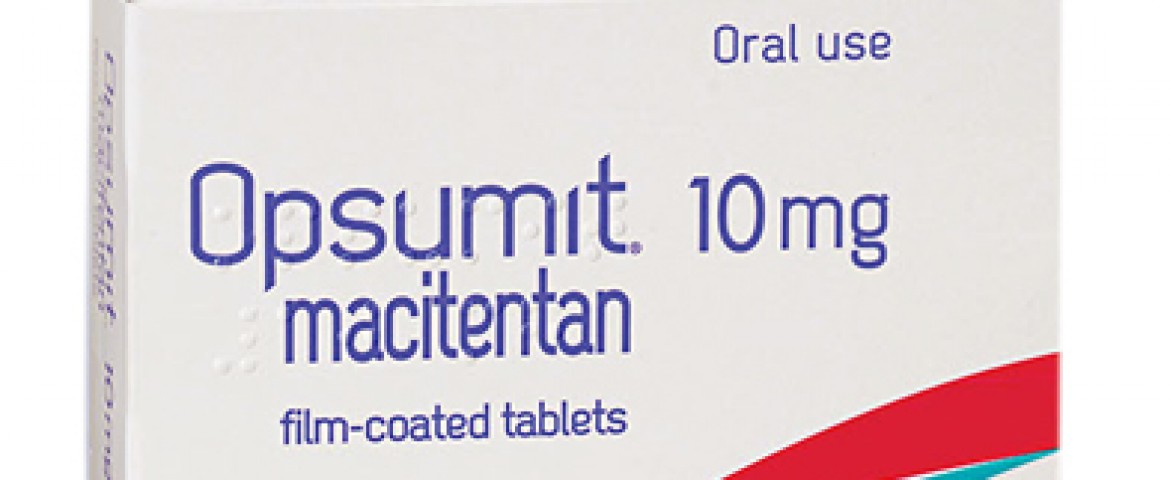PHA Canada Raises Concerns with Limited Access to Opsumit
Written by |

 Canadian patients who suffer from pulmonary arterial hypertension (PAH) are raising concerns about the risk of heart failure and death associated with the disease due to a new recommendation from the Common Drug Review (CDR) to limit the access of Opsumit (macitentan) to newly diagnosed patients. The alert was made in a press release by the Pulmonary Hypertension Association of Canada, which claims that patients should not be delayed in receiving or denied the therapy.
Canadian patients who suffer from pulmonary arterial hypertension (PAH) are raising concerns about the risk of heart failure and death associated with the disease due to a new recommendation from the Common Drug Review (CDR) to limit the access of Opsumit (macitentan) to newly diagnosed patients. The alert was made in a press release by the Pulmonary Hypertension Association of Canada, which claims that patients should not be delayed in receiving or denied the therapy.
Given the fact that PAH is a rare and progressive disease that is already difficult to treat, the Pulmonary Hypertension Association of Canada believes that the CDR recommendation made to provincial and territorial public drug programs is restricting patient access to the new therapy, as well as limiting physicians from exercising their own clinical judgement.
[adrotate group=”4″]
“By recommending that physicians follow a stepped approach in prescribing PAH treatments, including Opsumit, the CDR is suggesting that governments deny this small group of patients’ immediate access to optimal, individualized treatment options that could have long-term, life-altering outcomes,” says the national manager of the association, Angie Knott. “As a result, newly diagnosed PAH patients could reach a more advanced stage of the disease, suffer from a worse quality of life, require a lung transplantation or die much earlier than those with access to all treatments.”
Opsumit was the first long-term therapy to be approved in Canada for PAH, and has been proven effective in reducing the morbidity of Functional Class II or III PAH patients. In October, the province of Quebec, which is not included in the CDR, approved the public funding of Opsumit, as the Régie de l’assurance maladie du Québec added it to the list of covered medications included in the prescription drug insurance plan by recommendation of the Institut national d’excellence en santé et services sociaux.
Based on the discouraging results of an initial trial to study another therapy, a phosphodiesterase type-5 (PDE-5) inhibitor, the CDR recommended in January the use of Opsumit as long-term PAH therapy. However, the association, which represents the PAH community, considers that newly-diagnosed patients are being excluded and are losing time, while the treatment decisions should be made by patients and PAH specialists.
[adrotate group=”3″]
“This is a disease that can progress very quickly and we know that PAH patients can respond very differently to different treatments,” stated the Chair of the Pulmonary Hypertension Association of Canada, Sanjay Mehta, MD, FRCPC, FCCP, who is also the director of the Southwest Ontario Pulmonary Hypertension Clinic at the London Health Sciences Center in London, Ontario.
“Denying equal and consistent access to any and all effective medications, either alone or in combination may limit the successful treatment of our PAH patients which could be fatal. As PAH physicians, we need the latitude to make individual prescribing decisions from among all Health Canada-approved therapies, to ensure the best outcomes for our patients,” Mehta added.
The main concern from the association is that standardized treatments provided to patients recently diagnosed and delaying their access to more effective treatments may reduce the life expectancy and worsen their clinical outcomes. There are nine treatments approved specifically to treat PH currently in Canada that increase the quality of life and life expectancy of patients with PAH. PH advocates in Canada believe that limiting access to Opsumit is contradicting the advancements made to fight the disease.



